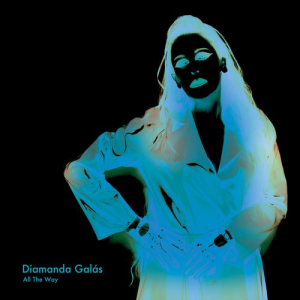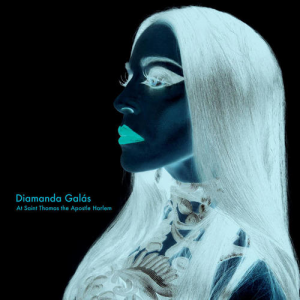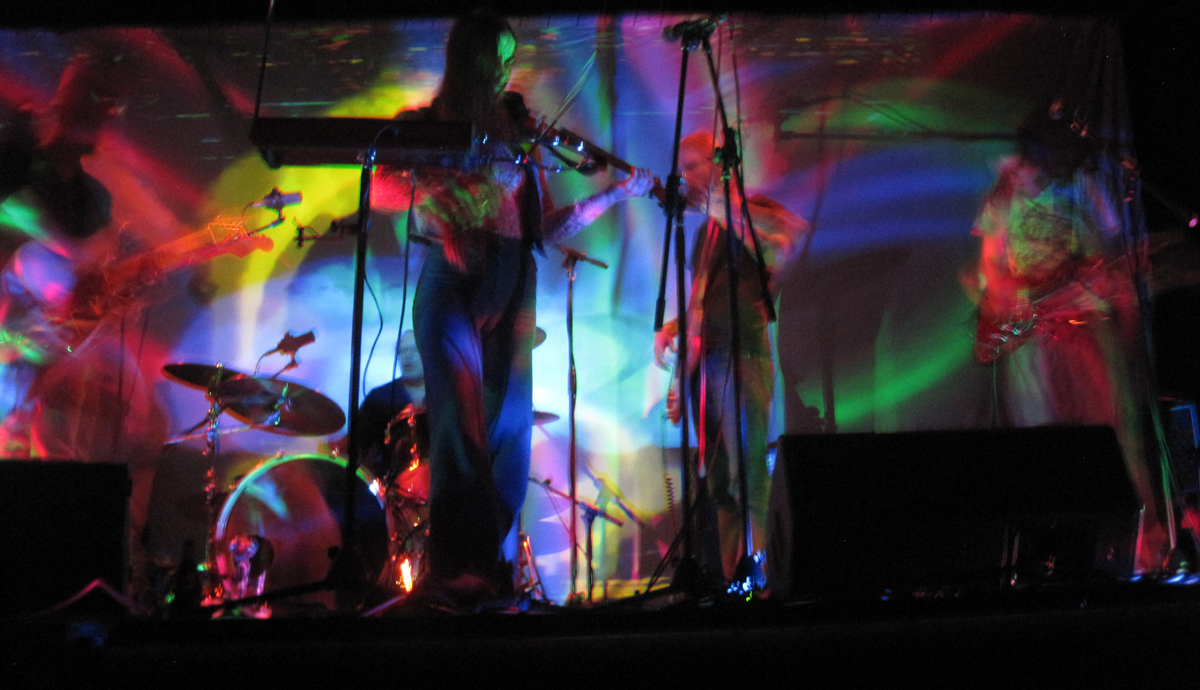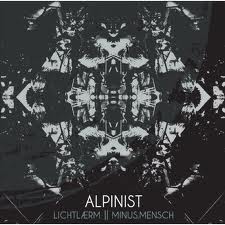 I wanted to start this out avoiding the clichés that plague writing about Diamanda Galás — “banshee” &c — but there’s a problem. There’s an analogue between how challenging her work is and how challenging writing about it in a non-facile way is. It requires a pretty expansive vocabulary.
I wanted to start this out avoiding the clichés that plague writing about Diamanda Galás — “banshee” &c — but there’s a problem. There’s an analogue between how challenging her work is and how challenging writing about it in a non-facile way is. It requires a pretty expansive vocabulary.
I’m not particularly well-versed in technical terms for singing but, even so, the breadth of technique used is enormous; leafing through a couple of technique dictionaries, I can’t find a name for a head voice which modulates timbre from the head cavities to such an extent, but doesn’t quite use the fry tones (etc) of the family known as throat singing. Stick some vocal effects on top (lightly dusted here rather than full soundscapes á la Litanies Of Satan etc) and it’s a bit of a bastard to not revert to cliché.
But let’s be clear about this — what Galás doesn’t do is “throw the rules out” or any such iconoclasm; she’s a deeply committed singer whose classical technique is demonstrably formidable. While she has a litany of melismatic techniques which destabalise not just note-diction relations, but also phrase-bar relations (see the versions of “Oh Death” on both these albums). So when I say she’s classically rigorous, I also mean that Galás has this capacity to distend songform in a way that’s probably got more in common with, say, Albert Ayler and John Coltrane than it has the great American song book. It may be that conventional singing wisdom objects to extensive subversion of technique — for instance overbreath (deep breaths in and constricted out) applied as coloratura isn’t terribly common, unless there’s some great raft of avant-garde singing I’ve missed out on.So anyway. Galás has two new records out. They’re discrete, coherent entities, but I’m not entirely clear why this isn’t a two CD collection like La Serpenta Canta. But then again, it’s none of my fucking business, she can do whatever she wants.
All The Way
Stupid thoughts that went through my head when looking at the tracklisting — hasn’t she done that before? And the reason that’s stupid is because I’m not actually terribly familiar with her live oeuvre. I’m never entirely clear as to where Galás sits on the extemporisation-improvisation line, but what is clear is that she’s entirely capable of re-investing songs with entirely distinct sentiment. So we have a version of “The Thrill Is Gone”, which I know best from the Malediction And Prayer version. Which is, incidentally, one of my favourite songs of hers — the opening notes sitting around an ostensibly narrow range while her subtle/ radical (it makes sense in context) use of techniques crucify the timbre of that limited tonal pallette. There, it functions as declamatory; here, the sentiment is more exasperated, foreclosed. Here too we have a piano arrangement that’s lightly dotting around the chordal structure with that kind of perverse, infrequent, pointillist dissonance common to someone like Alfred Schnittke. I wrote in my notes that a lot of this is almost offensively lugubrious and slow — which is to say that there’s a few tempos on here that feel south of grave (pun intended). Which is a terrifyingly well-crafted thing — it’s easy enough to distend a phrase when you’re in the upper tempi, but where, for instance, “You Don’t Know What Love Is” has a note which goes on, almost entirely without accentuation, for a very long time indeed,it stops sounding like sonic effect and appears more like sounding the abyss.And it’s really important to say that there’s always something particularly “present” about the voice; it’s something everyone has, so I guess it’s the thing that’s most human, and potentially most inhuman, aggravating, about a given musician. Galás is a particularly gifted pianist too, but that tends to get pushed to one side. There’s a huge amount of dynamic in there and she’s entirely capable of hitting the keys really fucking hard. So it’s a lovely change of focus with “Round Midnight” being an extended piano-only improvisation around some very classically lush chords; and of course, it being Galás, there’s a wealth of ideas thrown into it. Passages of excessively pedal tones, fractured bars that bring to mind, say, Erik Satie, huge variegation on volume and tone — I mean that, on the basis of this alone, Galás is well within a tradition of avant-garde pianism. It’d be lovely to hear some exclusively piano stuff from her, but I’d guess that it’s outside of the remit of her thing, which is a shame.
Probably the centrepiece of this is a version of the by now well-worn (but no less welcome) “Oh Death”… which is frankly terrifying. Returning to the problem of descriptions, a second is that there’s a category of adjectives which endeavour to place a piece as entirely transcendental, the full “othering” of the music; it’s a compliment to the music, without a doubt, but a failing on the part of the writer. The paradox being that it’s really difficult to describe this, lending itself to those flat-transcendental adjectives. The variegation on this — variously radical staccato stopping syllables from taking any discernible form, notes going on well over a phrase, no apparent idea what a phrase is, use of implausibly extended fry tones (very &c) make this a terrifying, exhausting proposition.A faintly appalling analogy, but there’s a bit towards the end of The Cramps’ “New Kind Of Kick” where Lux Interior‘s repetition of the main phrase loses all diction and form and descends into a bark; well, this version of “Oh Death” is like taking that idea and applying it in a million different litanies of despair. It’s not even particularly showy, in the way that a lot of vocal improvisation seems to follow a narrative of performativity — this is only a small number of rhythmic and melodic ideas in strict compositional terms, and by the time Galás has applied a load of technique-as-filter to it, nothing quite makes sense, but it still holds together. Yeah, hyperbole takes over where description fails here. Real good.
A really fucking good album. But then…
At St Thomas The Apostle Harlem
 When Wiley‘s album dropped earlier this year, I was thinking that it’d be a while before I stopped saying it was album of the year. But here we are with something that got me properly excited. Ridiculously good.
When Wiley‘s album dropped earlier this year, I was thinking that it’d be a while before I stopped saying it was album of the year. But here we are with something that got me properly excited. Ridiculously good.
In a lot of ways this is probably my favourite selection of Galás songs. I’m mildly embarrassed to not be that into a lot of blues tradition music, but I fucking love me some Albert Ayler and Jacques Brel. So there’s three on here that are immediately in a theoretical list of “things I’d like Diamanda Galás to do”. Top marks without even listening to it.
Opener “Vera La Morte” is a setting of a Cesare Pavese poem and, being Italian, it’s perhaps the most unabashed example of Galás singing very close to bel canto. There’s a minimum of variations here and the pianism is relatively straight and it is quite excruciatingly beautiful. Full title of the poem is “Verrà La Morte E Avrà I Tuoi Occhi” or (as I gather) “Here Comes Death To Take Out Your Eyes”. It is, of course, maudlin and sad in a way that only full-bloodied Italian romanticism can be (strictly speaking, neither poem nor song are romantic but, y’know, hyperbole).
Perhaps the most astonishing track on the record is her version of Ayler’s “Angels”. Now, all objectivity aside, I do think Ayler is the peak of how to render a melody, and it’s seriously gratifying to hear that Galás hears the huge lyrical quality in Ayler, his astonishing capacity to shake a monodic melody around just beyond the abilities of the (typical) human voice. Perhaps most shocking of all, there’s a dangerous amount of this track which could be described as being in a major key. The pianism has that sort of euphoric end of days feel of, say, Vladimir Horowitz doing the Liebestod (OMG can you imagine Galás doing that?) and this is basically a song so perfect it surprises me that Richard Strauss had nothing to do with it.There’s possibly a degree more parity on this record than on All the Way — “Die Stunde Kommt” seems to rest on fairly declarative, grinding piano lines. It’s seemingly a re-casting of a poem by Ferdinand Freiligrath – and has got a lot in common with Franz Liszt‘s setting (cf here) but with that very lieder-y regulation of pulse, as if cutting out the sentiment to get to the bleak core of the song. Which is probably Galás’s most “core brand value”, if such a thing could be said — for all the exceptional, radical, and prodigiously tasteful extemporisation, Galás typically renders a song in its basest form; the voice is less a vehicle of sentiment on this record and more the complex semiotic of a raw state of despair (purple prose will end soon, I promise).
It’s perilous to read too much into it, but it is interesting that there’s a nod to Liszt and a fairly straight-up “operatic” opener for this record; it might be the case that it’s my favourite record of Galás’s for a while because it touches on her more orthodox singing and illustrates that it’s there, stronger than most, and any decision to move away from it is in service of the song.Now Jacques Brel, as you’re probably aware, writes some of the very saddest songs, with the most gorgeous and touching affects. He’s a funny singer — he’s not quite the peaks of perfection of (say) Paul Robeson or even perhaps Charles Aznavour, but he’s this fine way with a lyric and a delivery and arrangement that far surpasses a lot of the chanson of the time he was operating. He’s also got a very funny face to look at, I really recommend maybe getting a picture of his face for your house. Anyway.
So Galás doing Brel is particularly interesting because she’s not doing the broad extemporisation that she does for “Oh Death” – certainly “Fernand” does an almost straight up version — it was quite a close listening to realise that Galás’s variations on it involve only a modicum of constricted notes and slightly odd annunciations. It being Brel, it’s gorgeous, but it’s perhaps the least “Galás covers [x]” of the two albums — which in itself it pretty interesting. The second Brel is a version of “Amsterdam”, a song that’s sadly better-known in Anglophone worlds for a succession of second-rate translations. Galás of course does it in the native French and, of course, invokes all of its proper seediness and invokes Brel’s trick of moving tempi to suit the song (perhaps best exemplified by “Une Valse À Mille Temps”). A problem I have as a (very) partial French speaker is that Brel’s intonation and emphases are a bit subtle for my ears, so Galás’s re-emphasising makes the lyrics just bright enough for me to catch them properly. And, again, a version of “Oh Death” that’s simply excoriating, blistering and all those other adjectives that by God I can’t help but use at this point. Which is probably the point at which I should stop writing.I do mean it quite sincerely though, At St Thomas The Apostle Harlem is the best Galás for my money for years and I really can’t recommend it enough. The sharpness and restraint and the savage transmission and all of the things. A great entry point to her world of impregnably peerless technique for those of that persuasion and just an amazing set of none-bleaker tunes for those who aren’t inclined to get excited by fastidiously virtuosic playing. Buy buy buy.
-Kev Nickells-



